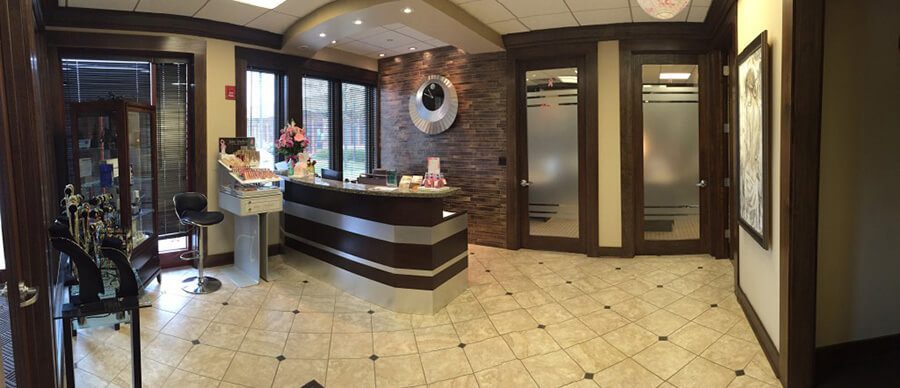Breast Reconstruction
Breast Reconstruction Surgery
The diagnosis of breast cancer is a life-changing event to patients and their families. Breast reconstruction following a mastectomy is the accepted standard for patients who choose to elect this treatment option. Breast reconstruction can be performed at the same time as a mastectomy or at a later date. There are numerous options for different types of procedures, so it is possible to find a method of treatment that is ideal for any situation.

Breast Reconstruction
The goal of breast reconstruction is to restore a natural look and feel to the breasts. Reconstructing a new breast can be accomplished by using a patient’s own tissue (autologous), implant-based reconstruction or a combination of both. In general, breast reconstruction can be accomplished in multiple or single stage operations depending on each individual patient’s needs. The secondary procedures are typically done on an outpatient basis and can be used to improve symmetry or even recreate the nipple-areola complex. In addition, breast reconstruction procedures can begin immediately after the mastectomy or can even be accomplished in a delayed fashion after a patient has healed from the original procedure.
How is a Breast Reconstruction Performed?
The exact procedure that you and your surgeon choose for breast reconstruction varies based on in-depth preoperative discussions that highlight patient-specific factors and goals. Depending on the technique, the first procedure can typically take anywhere from one to five hours. The operation is performed in a hospital under general anesthesia. For most Chicago and Northbrook patients, it is necessary to spend a day or two in the hospital to recover following the procedure. Many times, a technique known as tissue expansion is often a good option. This technique relies on a balloon-like device (tissue expander) that is used to stretch the tissues remaining on the chest wall. This creates a pocket where a permanent implant (silicone or saline) is later inserted. If tissue expansion is performed, you will need to see your surgeon numerous times over the first few months to slowly fill and expand the tissue expander over time before the final implant can be placed to complete the reconstruction.
If you have had a mastectomy because of cancer you may be a candidate for breast reconstruction. In all breast cancer-related cases, health insurance covers the cost of the reconstruction as well as the balancing procedure to the opposite side to ensure symmetry. This may include a breast lift, breast reduction or even breast augmentation. You need to be healthy enough to undergo surgery without major complications. Let your doctor know if you have any conditions or are taking medications that could cause increased bleeding or delayed healing. Even with major advances in breast reconstruction, candidates should realize that breast reconstruction has limitations. The procedure is intended to provide the most natural looking result possible, and patients are typically very happy with the results.
Recovery from Breast Reconstruction
Following breast reconstruction surgery, a drainage tube is typically put in place to allow serous fluids to be removed from the surgical site. Mild bruising, some swelling and discomfort are commonly encountered. Our surgeons will give you medications to help manage any postoperative discomfort. To prevent infection and ensure proper healing, patients are given aftercare instructions that they must carefully follow. Strenuous physical activity may need to be avoided for up to three months, and you may need a few weeks off of work depending on the technique used and your particular occupation.
Terms to Know
Mastectomy – surgical removal of the breast tissue.
Tissue expander – a temporary implant that is slowly filled with saline to expand the skin and soft tissue of the chest wall.
Implant-based reconstruction – A silicone or saline implant is used to reconstruct the breast after mastectomy in 1 or 2 stages.
Autologous reconstruction – using your own tissue to reconstruct the breast after mastectomy.
Bilateral– pertaining to, involving, or affecting two or both sides.
Breast Reconstruction
Frequently Asked Questions
-
Is breast reconstruction covered by insurance?
Yes, Breast reconstruction after mastectomy is covered by insurance companies. In addition, insurance will pay for a balancing procedure (lift, reduction or implant) on the opposite side to help establish symmetry. The coverage is mandatory due to a federal mandate.
-
Can breast reconstruction be completed at the time of my cancer surgery?
Yes, immediate reconstruction after mastectomy is both a common and safe option for patients. This typically involves placing a tissue expander or using one’s own body tissue to reconstruct a breast. Revisionary procedures are used frequently to ensure symmetry, place a permanent prosthesis and to recreate a nipple-areolar complex.
-
Are their factors that can negatively affect my healing and results?
Yes, smoking and radiation to the surgical site can negatively affect your wound healing. Smokers have much higher rates of complications including infection and wound healing problems. Smoking decreases the amount of oxygen required to repair and build cells and constricts the small blood vessels that transport oxygen to the tissues. Also, a history of radiation therapy to the surgical site can negatively affect wound healing. Your surgeon will evaluate you and discuss surgical options that will optimize your outcome.






